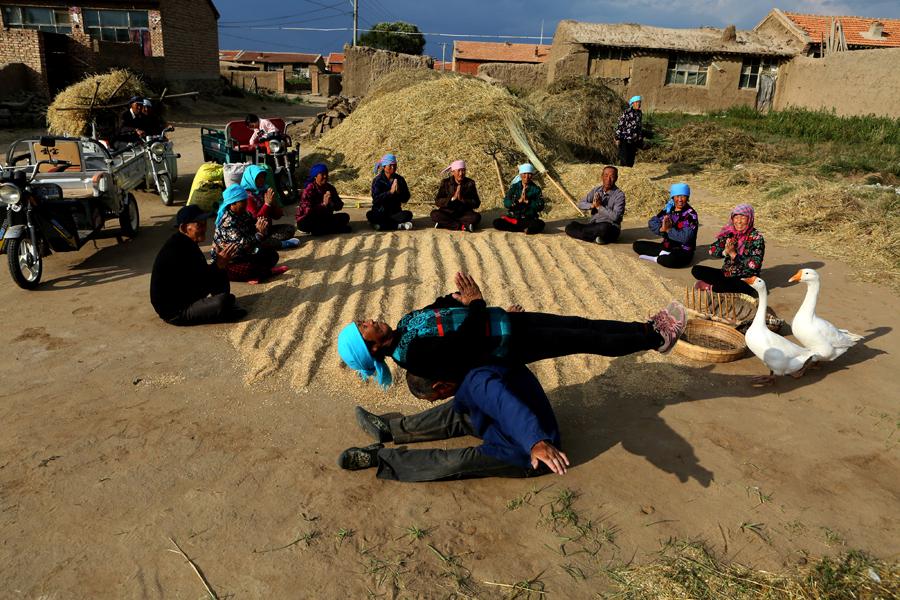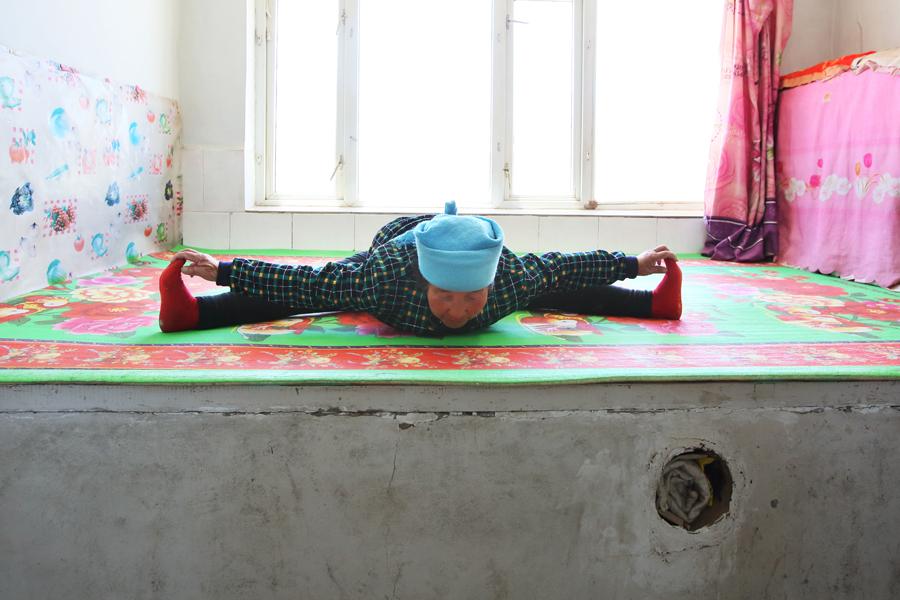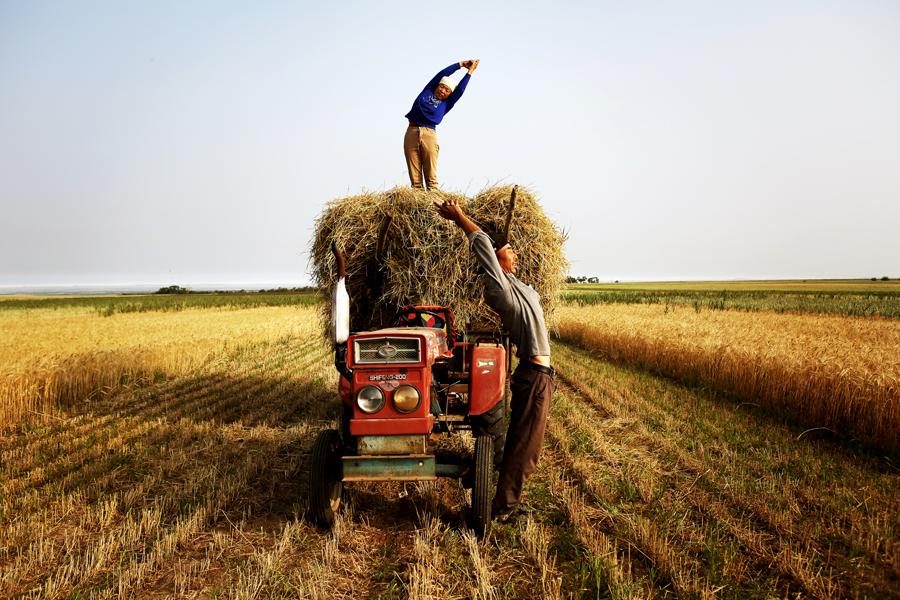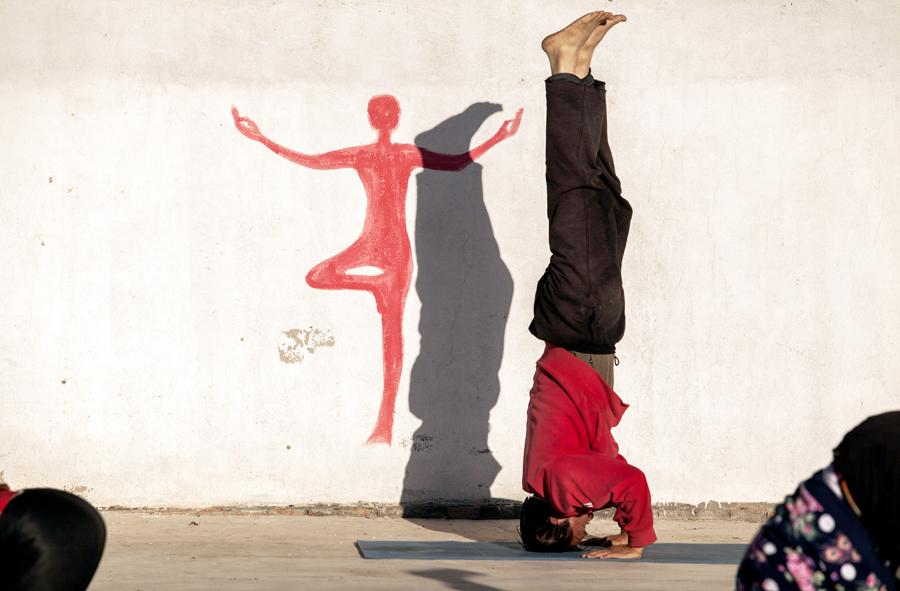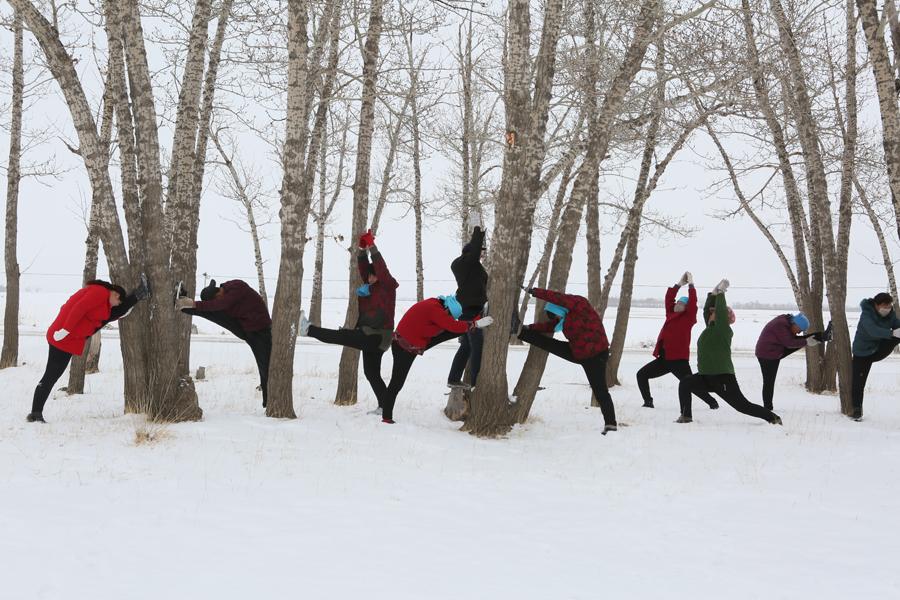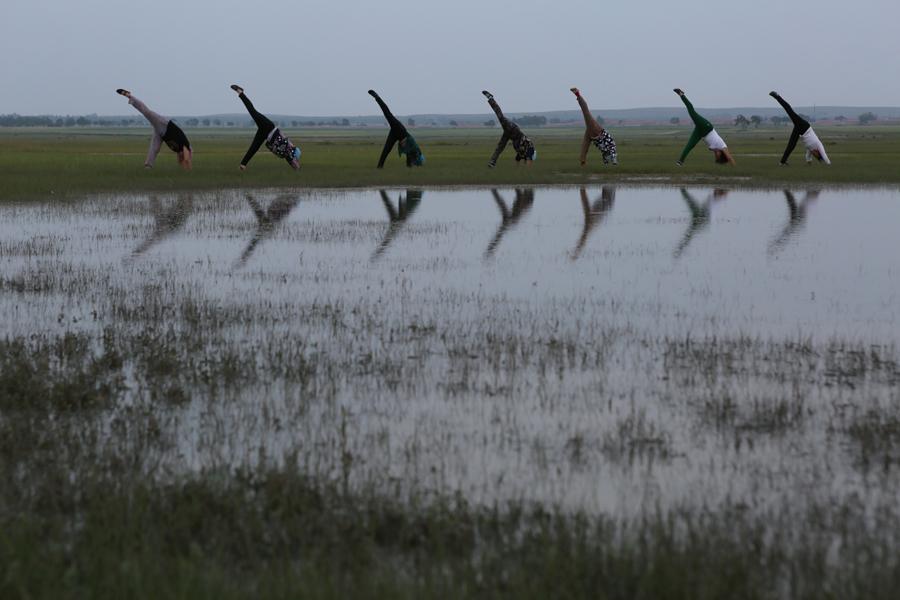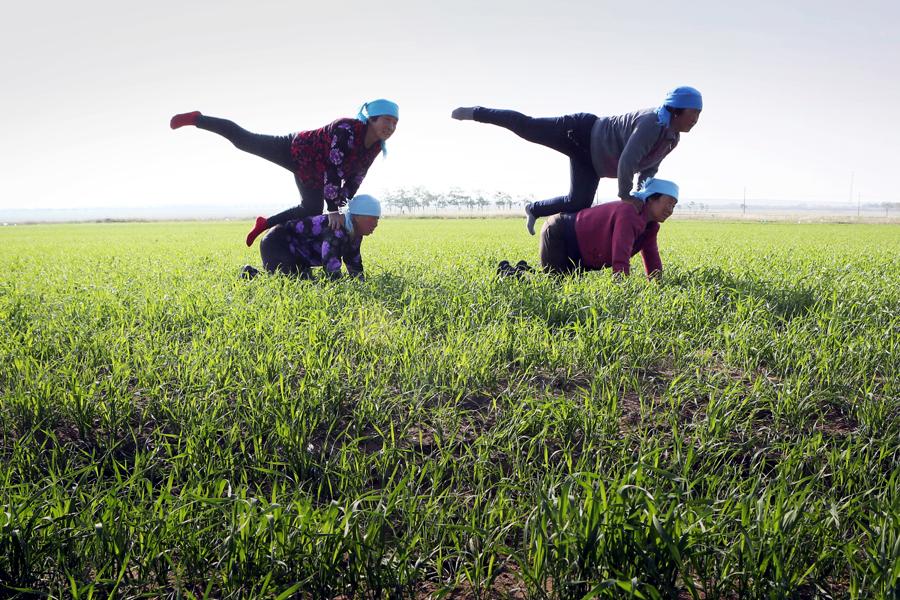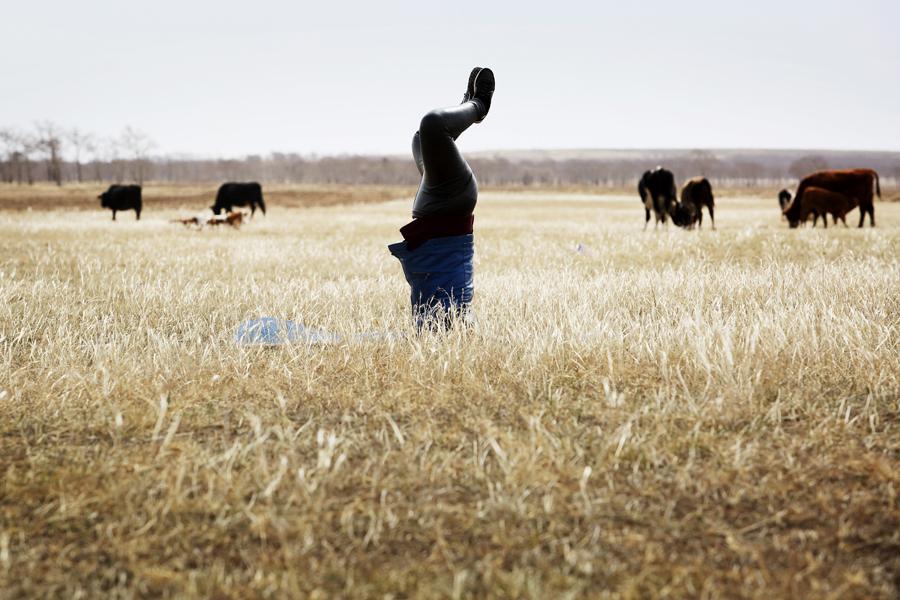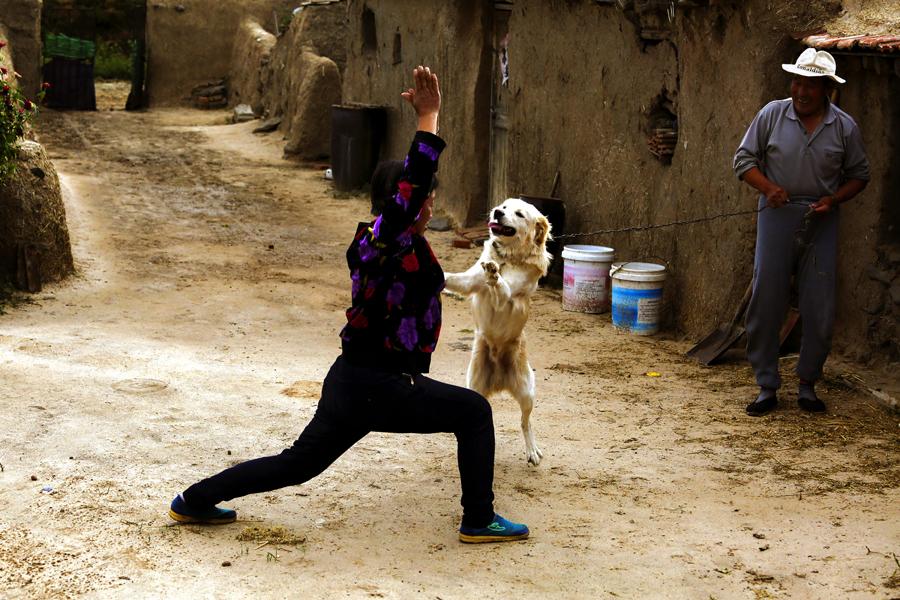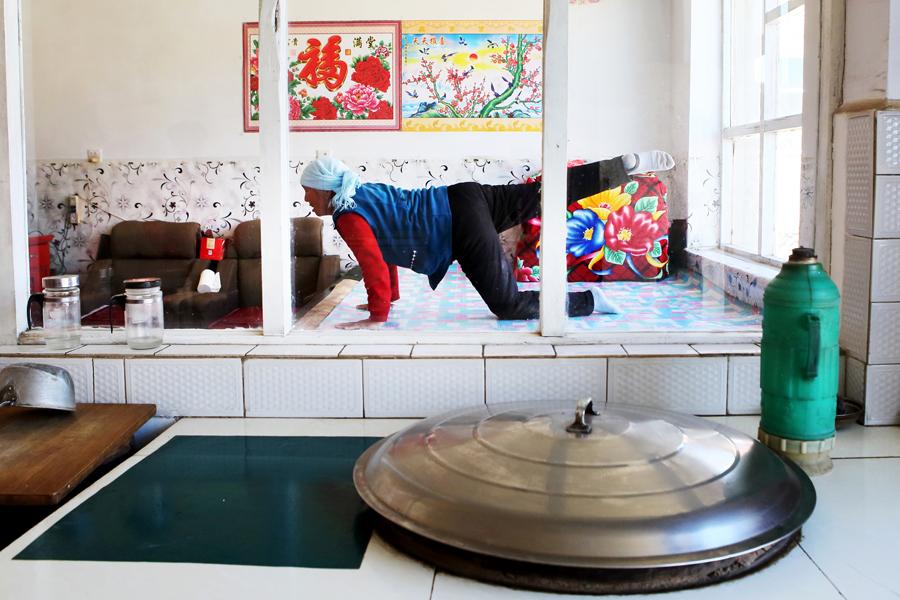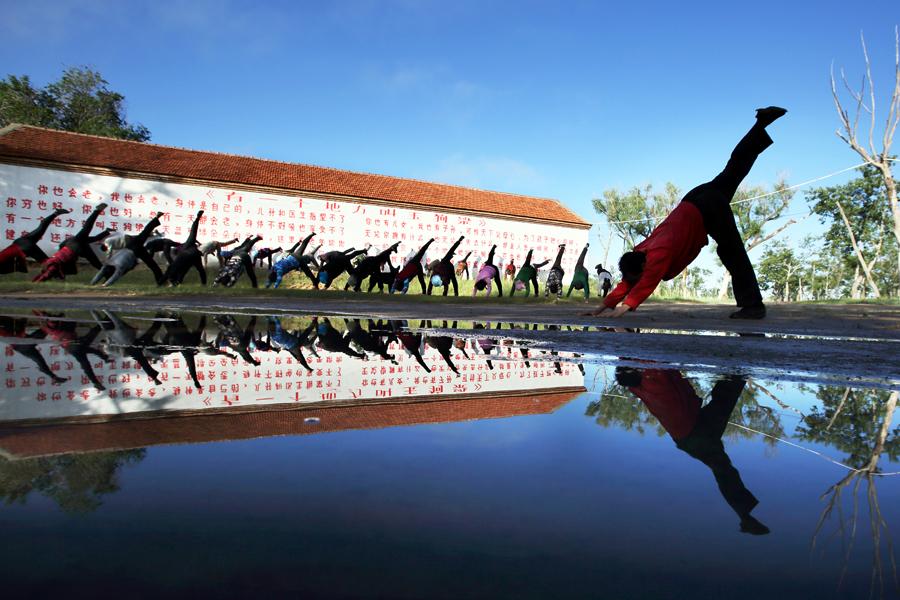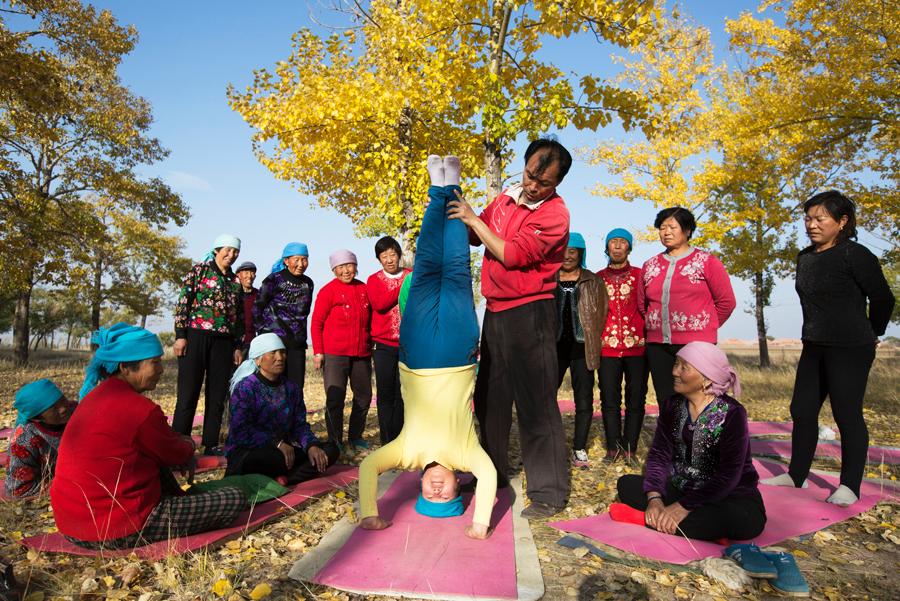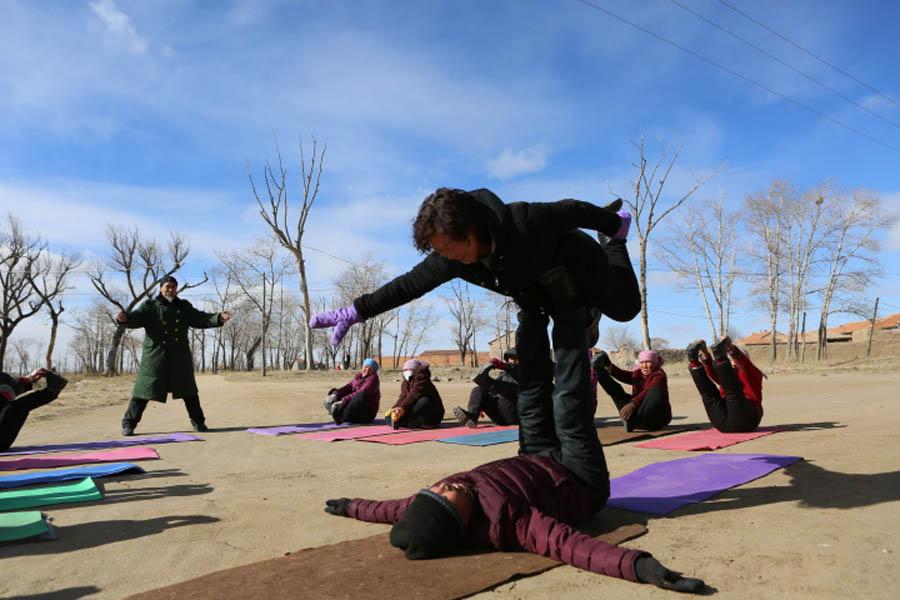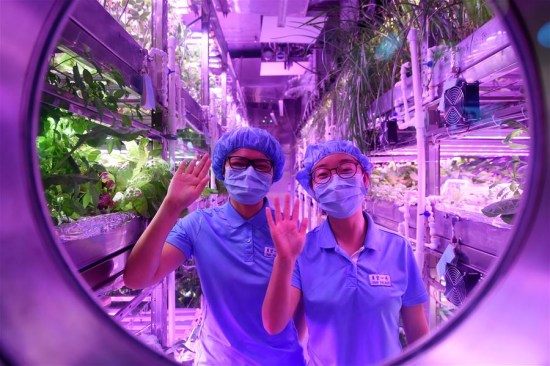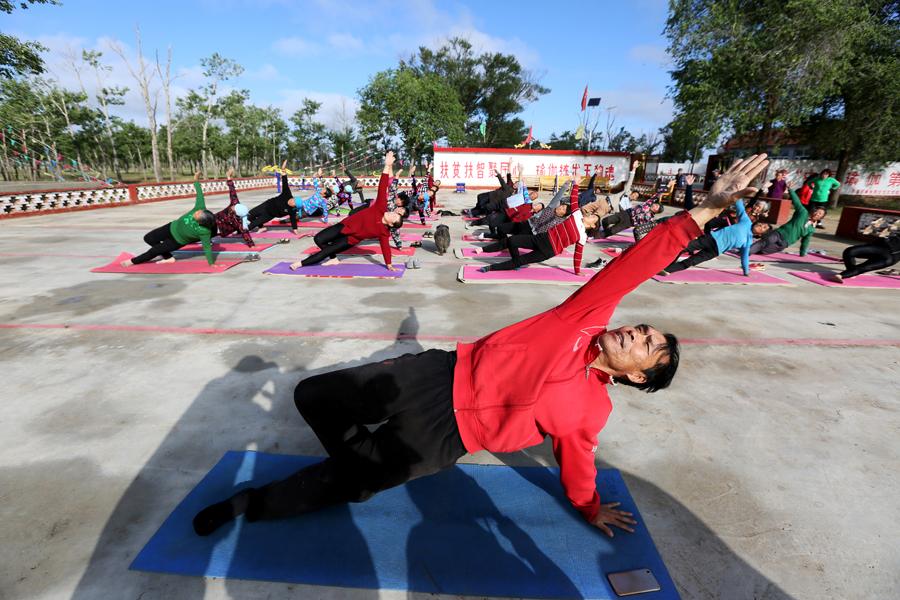
Lu Wenzhen leads residents of Yugouliang village in Hebei province during a yoga session. (Photo by Zhao Zhannan/for China Daily)
With stronger bodies, they will be able to work harder, save on medical expenses, and be in a better position to emerge from poverty, he said.
But persuading residents who were out of touch with urban trends like yoga to try something new was no simple task.
Most of the initial responses from residents included: "What is yoga? Why would I do that? It must be something that people living in cities do, not we poor villagers."
Indeed, at the first yoga class Lu offered, only a half-dozen women showed up.
"I felt it would ease the aches and pains of my back," said Liu Ying, 75.
News traveled fast around the small village, which is home to fewer than 100 permanent residents, mainly seniors and children.
"Several villagers, aged from 57 to 82, follow me to do yoga at least one hour a day," Lu said, adding that the number has increased to about 60 people joining his daily sessions.
However, the yoga he teaches them is different from traditional yoga styles. To make the exercise easier and more practical, he teaches them physical movements that mimic their daily lives, such as tilling fields or pulling the handles of a bellows.






